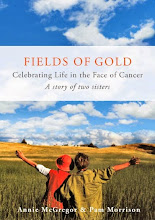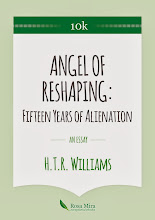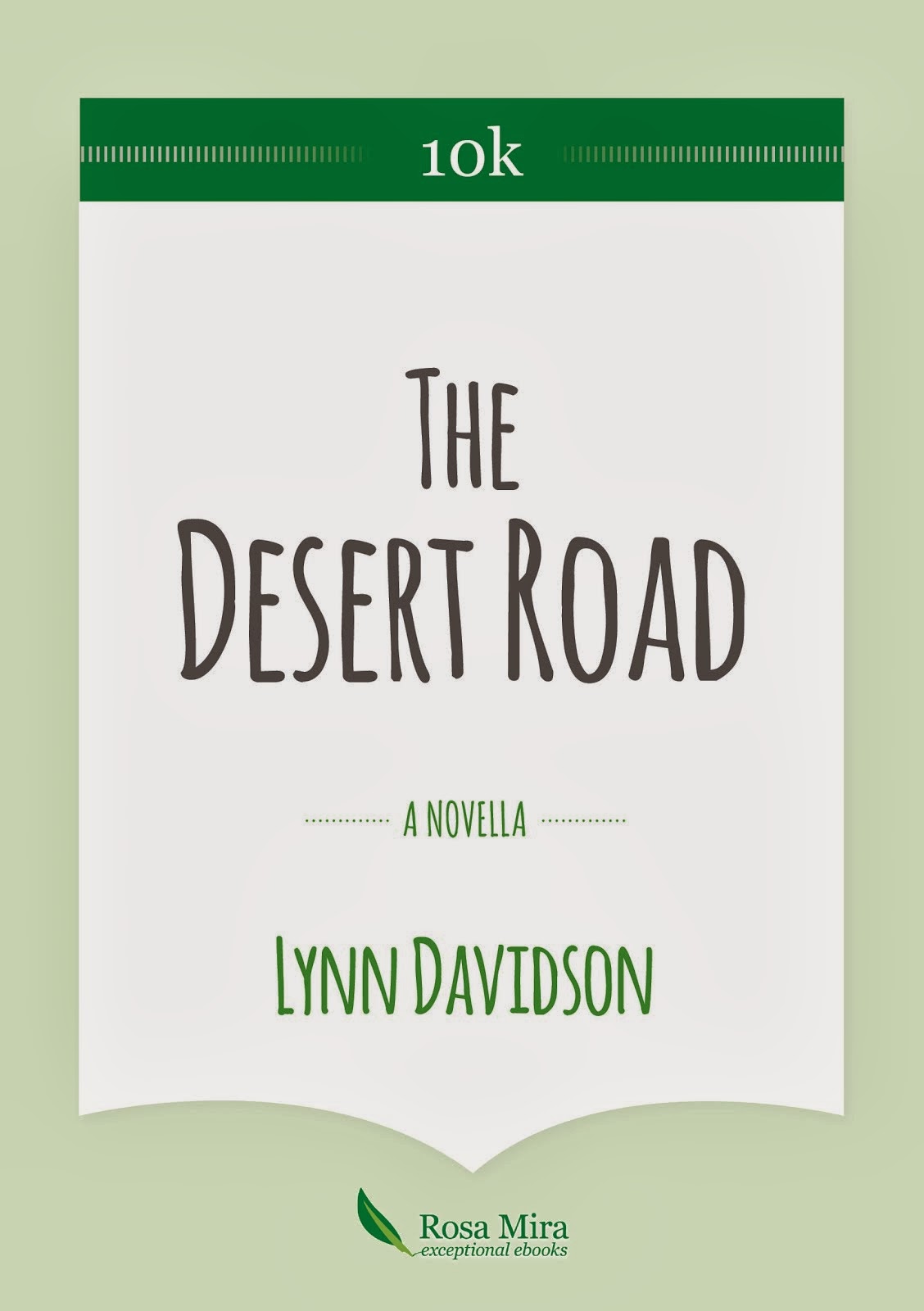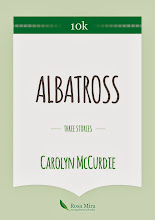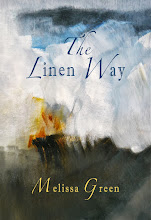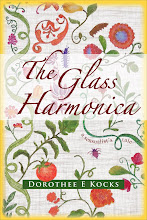In the southern hemisphere, the working year is drawing to an end. In a few days, New Zealand will hang up its working habits and go en masse to the beach, the hills, the riverside or the backyard. The cities will become havens of quiet. Rosa Mira Books HQ has already taken to the countryside and the company of ducks, opportunistic rabbits, wheeling swallows and morning bellbirds. I'm pretty sure I saw the rat, too, down by the pond, looking for a chance to pinch the duck's pellets.
Talking of ducks, I came across another delectable small Australian publisher which is to put out "an artisan set of Sue Woottons’s poems, hand printed by Canberra hand press printer Caren Florance of Ampersand Duck, forthcoming in early 2013".
The Happiest Music on Earth is being formatted. All digits are crossed that this will be a straightforward conversion so that it's ready before Christmas. Or even for Christmas. I had trouble writing 'for Christmas'. Possibly Ratty would have no such scruples, but I believe that what's needed 'for Christmas' is calm space, warm companionship, meals and stories shared, and time for contemplation of the good that's in the world and how each of us can add to it.
On the other hand, I reckon that Rosa Mira's ebooks add to the good that's in the world, especially if they're read. And enjoyed. And shared. An ebook for Christmas, anyone?
Thursday 20 December 2012
Thursday 13 December 2012
Selling ebooks he is not, but isn't it good to see someone looking so calm and purposeful at this time of year, when the rest of us are feverishly winding up our projects preparatory to winding ourselves down? I'm delighted to learn that Ratty can French-knit. I'm sure that the e-reading populace will also find it a fascinating and powerful stimulus for rushing over to Rosa Mira Books to stock up on midsummer (or midwinter) reading.
Honestly, employ a rat at your peril.
Some people, however, are worth ten rats. Claire Beynon has blogged over at Icelines, with a blushingly generous piece about what she perceives to be happening here at Rosa Mira. She's included one or two, as yet unseen, portraits of The Rat — for what they're worth. Do take a cruise around her stunning site, and pop your head into her studio.
On 12.12.12 at 1.11 the Dunedin HQ was sold and will be vacated on 31.1.13. Actually, HQ remains intact — who needs more than a laptop and a table? — but the RMB operation will be on the road for the next year or two. Who knows, we might wind up in a rats' nest near you.
Honestly, employ a rat at your peril.
Some people, however, are worth ten rats. Claire Beynon has blogged over at Icelines, with a blushingly generous piece about what she perceives to be happening here at Rosa Mira. She's included one or two, as yet unseen, portraits of The Rat — for what they're worth. Do take a cruise around her stunning site, and pop your head into her studio.
On 12.12.12 at 1.11 the Dunedin HQ was sold and will be vacated on 31.1.13. Actually, HQ remains intact — who needs more than a laptop and a table? — but the RMB operation will be on the road for the next year or two. Who knows, we might wind up in a rats' nest near you.
Tuesday 11 December 2012
Interview with Sue Wootton & unveiling the 10k cover
I've been talking about the 10k series for a little while: the idea of publishing a series of shorter ebooks, each showcasing fine work whether an essay, mini novella, piece of memoir or, as in the inaugural edition by Sue Wootton, a collection of stories. Here's the cover for the series, give or take a tweak or two, designed by the stellar Caroline Jackson.
-->
-->
Sue and I talked recently, in the
way we do these days, by email.
RMB:
Sue, would you say a little about writing these three stories — the time, place,
and any anecdotes associated with each?
SW:
I think that seeds for stories drop into the imagination all the time.
Sometimes I’m aware of this, and sometimes I’m oblivious – until one day,
seemingly from nowhere, the story emerges. ‘Standard Roses’ comes into this
second category. It was written in fits and starts. I kept going back to it,
and for a long time nothing much evolved. One day, as if I had earned her trust
with my patience, the protagonist started to speak. She told me, in one big
blurt, everything I needed to write the story.
One seed for ‘The Happiest Music on Earth’ was
the merry-go-round at Sydney’s Luna Park, which charmed me. Sort of. Beneath my
enchantment there lurked an opposing feeling, very faint (I would have denied
it on the day), but nevertheless a sense that there was also something sinister
about it. In retrospect, that was the necessary second seed that sparked the
story.
‘Icy Noctiluca’ is seeded in historical fact.
Hennig Brannig did discover phosphorus in 1669 by boiling putrefied urine in a
search for gold, a process that did stink. He was one of a new breed of
alchemists, beginning to think in a revolutionary – scientific – way about the
composition of the natural world. Others pondered phenomena such as luminosity.
What was its essential element? It was thought that a substance called
phlogiston was responsible for fire, but nobody had ever isolated it. Thus
there was much interest in cases such as the one I read about in a 1747 edition
of the London-based Gentleman’s Magazine:
a maid with sparking petticoats (the hottest maid her lady employer had ever
shared a bed with). Gentlemen travelled from far and wide, said the article, to
examine this phenomenon. In the name of science, you understand.
RMB:
Are there writers whose work or way-of-being you draw on for encouragement or
inspiration?
SW:
Recently I read some early stories by Mavis Gallant. I marveled
at the astute character observations in her work. So confident so young! Alice Munro – I’ve just
read her latest collection – always carries me off to Canada, from where I
return deeply affected by my stay.
Marilynne
Robinson’s novels are lodestones for their beautiful, measured language,
and the deeply integrated crafting of her fictional worlds. There are no lazy
observations in these writers’ works, and I bet there have been no short cuts
to the finished product either. Contemplate, they seem to say. But also: concentrate,
continue, and complete.
RMB:
What are your current challenges?
SW:
As always, abiding by the mantra above. The contemplation part is easy,
especially idle contemplation (my favourite). Concentrating, continuing and
completing – much harder.
RMB: Current
delight?
SW:
Writing poetry, after a long muse-less spell.
RMB:
Hooray! What's up ahead for your work in 2013?
SW:2013 is the Year of the Novel. I am already carbohydrate loading.
 |
| Sue Wootton Photo by Doug Lilly |
| RMB: (What's this box? I have no idea but I can't get rid of it either.) I'm hoping to release The Happiest Music on Earth before Christmas but not all factors are in my hands — I'll keep you filled in. |
Monday 10 December 2012
Glad readers
Although I'm planning to give you a teaser today for the inaugural almost-ready 10K ebook, The Happiest Music on Earth, in the meantime I came across a couple of articles worth sharing.
Writer J.P. Ganley read Road Markings: An Anthropologist in the Antipodes earlier this year: "I stumbled upon Jackson’s book at Rosa Mira Books – a classy, rather gorgeous looking NZ e-publishing site, by the way – and read the synopsis, blog posts and review. Within seconds I was hitting BUY NOW, and downloaded a copy onto my KOBO e-reader ... I can’t express enough how much I’m enjoying this …" You can read the whole on her blog, A Certain Book.
In the same hour, I was alerted to this appreciative piece about Road Markings by Terence Rissetto in The Landfall Review Online, NZ books in review.
Meanwhile (one of my favourite blogwords, I've noticed), we seem to have a development in the story of 'the other rat'.
Writer J.P. Ganley read Road Markings: An Anthropologist in the Antipodes earlier this year: "I stumbled upon Jackson’s book at Rosa Mira Books – a classy, rather gorgeous looking NZ e-publishing site, by the way – and read the synopsis, blog posts and review. Within seconds I was hitting BUY NOW, and downloaded a copy onto my KOBO e-reader ... I can’t express enough how much I’m enjoying this …" You can read the whole on her blog, A Certain Book.
In the same hour, I was alerted to this appreciative piece about Road Markings by Terence Rissetto in The Landfall Review Online, NZ books in review.
Meanwhile (one of my favourite blogwords, I've noticed), we seem to have a development in the story of 'the other rat'.
Saturday 8 December 2012
Sex in America
Amazon threatened to ban it, but Dorothee Kocks persisted, and now they've allowed it into their bookstore: drawing on the riches she uncovered in research for the The Glass Harmonica, Dorothee has created an interactive book titled Such Were My Temptations 'uncovering the surprising, secret world of America's first sexual revolution'. I had great fun checking out the teasers this morning.
Here's a four-minute video of Dorothee telling an audience how Such Were My Temptations came about. She's always a delight to listen to — the lyrical voice that sounds through her novel has its physical counterpart here.
And here's the delectable preview of the interactive book itself.
For those in the US, go straight to Amazon for your copy for US $2.99. To read it on your computer, purchase the Kindle Edition and select Kindle Cloud Reader. For those with an iPad, it's available at the iBookstore.
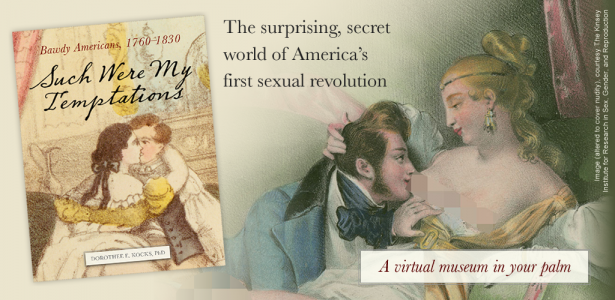
I'm still trying to access a copy, here in NZ. I'll let you know when I do. Meanwhile, we have Dorothee's gorgeous, vital and moving novel, The Glass Harmonica: a sensualist's tale, in which she makes rich use of the material she's shared in Such Were My Temptations.
Here's a four-minute video of Dorothee telling an audience how Such Were My Temptations came about. She's always a delight to listen to — the lyrical voice that sounds through her novel has its physical counterpart here.
And here's the delectable preview of the interactive book itself.
For those in the US, go straight to Amazon for your copy for US $2.99. To read it on your computer, purchase the Kindle Edition and select Kindle Cloud Reader. For those with an iPad, it's available at the iBookstore.

"Kocks leaves no stone unturned in upsetting today's definition of 'Puritanical.' From political sex scandals to polyamorous poetry, New England's first citizens evidently had plenty in common with today's Americans. Those who think of the 1760's as an era of widspread chastity should brace themselves for surprise before reading Temptations..."
I'm still trying to access a copy, here in NZ. I'll let you know when I do. Meanwhile, we have Dorothee's gorgeous, vital and moving novel, The Glass Harmonica: a sensualist's tale, in which she makes rich use of the material she's shared in Such Were My Temptations.
Friday 7 December 2012
Dodging behemoths
Issue 100 of the quarterly review magazine New Zealand Books is out and I was pleased to have been asked to submit an article about the ebook as artifact. I wrote with conviction and enthusiasm for what I'm doing here on Rosa Mira Books and for the opportunities that digital publishing provides. However I admit that the ebook itself as a tiny non-pictorial icon on a desktop, unless and until it is opened and read, is less than appealing. Much depends on the reading device and the attitude of the reader. Even more depends on content.
'Content' is what gives my work hours purpose and pleasure, as I read and discover exceptional writing, help its author to polish it up, and publish it in a digital form that does it credit.
'Content', until it's dealt with in a discriminating manner, is both wheat and chaff. Today I've come across two or three articles lamenting, for example, 'The Mighty Zon''s bid for world domination of the e/book market. In its haste and greed, Amazon has thrown wheat and chaff (beans and pods might be a more fitting metaphor for the home gardener) in together. And this might be the point at which independent publishers, small and cheeping from their various outposts, begin to regain credibility and value for discerning readers. "Amazon inspires anxiety just about everywhere, but its publishing arm is getting pushback from all sorts of booksellers…" The NY Times article goes on to name stores refusing to sell Kindles, and booksellers refusing to stock Amazon's publications.
In her blog this week, author and editor Anne R. Allen describes the knots that large publishers have recently tied themselvs into, trying to stay afloat and relevant: "HarperCollins, moving to more ebooks, is closing one of its biggest warehouses, and seems set to gobble up Simon and Schuster. And Simon and Schuster has launched a new scary-scammy self-publishing wing by teaming up with the vanity publisher Author Solutions. Yes, the Author Solutions which was recently acquired by Penguin, which was recently purchased by Random House."
Now, where am I going with this? I'm going towards small, discriminating e/book businesses trying to hold their heads up and put out fine work in the shadow of such behemoths as Amazon and Penguin-Random-Pearson. I came across Seraph Press today, not digital, but putting out a handful of finely produced volumes by NZ poets, most recently The Comforter by Helen Lehndorf. It is possible to buy books online elsewhere than Amazon, even if you run a Kindle. For example, meBooks stocks a wide range of ebooks by New Zealand authors, including Rosa Mira's. But if you want to support a small publisher, see if you can buy directly from their site. That helps them immediately and directly. It cheers them up, too. Please let me know of any small, selective digital publishers out there in the wider world. I'd like to point them out here.
Talking of knots, whose is the tail beside Ratty's? What happened to Lily? And what is the marketing department up to?
'Content' is what gives my work hours purpose and pleasure, as I read and discover exceptional writing, help its author to polish it up, and publish it in a digital form that does it credit.
'Content', until it's dealt with in a discriminating manner, is both wheat and chaff. Today I've come across two or three articles lamenting, for example, 'The Mighty Zon''s bid for world domination of the e/book market. In its haste and greed, Amazon has thrown wheat and chaff (beans and pods might be a more fitting metaphor for the home gardener) in together. And this might be the point at which independent publishers, small and cheeping from their various outposts, begin to regain credibility and value for discerning readers. "Amazon inspires anxiety just about everywhere, but its publishing arm is getting pushback from all sorts of booksellers…" The NY Times article goes on to name stores refusing to sell Kindles, and booksellers refusing to stock Amazon's publications.
In her blog this week, author and editor Anne R. Allen describes the knots that large publishers have recently tied themselvs into, trying to stay afloat and relevant: "HarperCollins, moving to more ebooks, is closing one of its biggest warehouses, and seems set to gobble up Simon and Schuster. And Simon and Schuster has launched a new scary-scammy self-publishing wing by teaming up with the vanity publisher Author Solutions. Yes, the Author Solutions which was recently acquired by Penguin, which was recently purchased by Random House."
Now, where am I going with this? I'm going towards small, discriminating e/book businesses trying to hold their heads up and put out fine work in the shadow of such behemoths as Amazon and Penguin-Random-Pearson. I came across Seraph Press today, not digital, but putting out a handful of finely produced volumes by NZ poets, most recently The Comforter by Helen Lehndorf. It is possible to buy books online elsewhere than Amazon, even if you run a Kindle. For example, meBooks stocks a wide range of ebooks by New Zealand authors, including Rosa Mira's. But if you want to support a small publisher, see if you can buy directly from their site. That helps them immediately and directly. It cheers them up, too. Please let me know of any small, selective digital publishers out there in the wider world. I'd like to point them out here.
Talking of knots, whose is the tail beside Ratty's? What happened to Lily? And what is the marketing department up to?
Subscribe to:
Posts (Atom)






